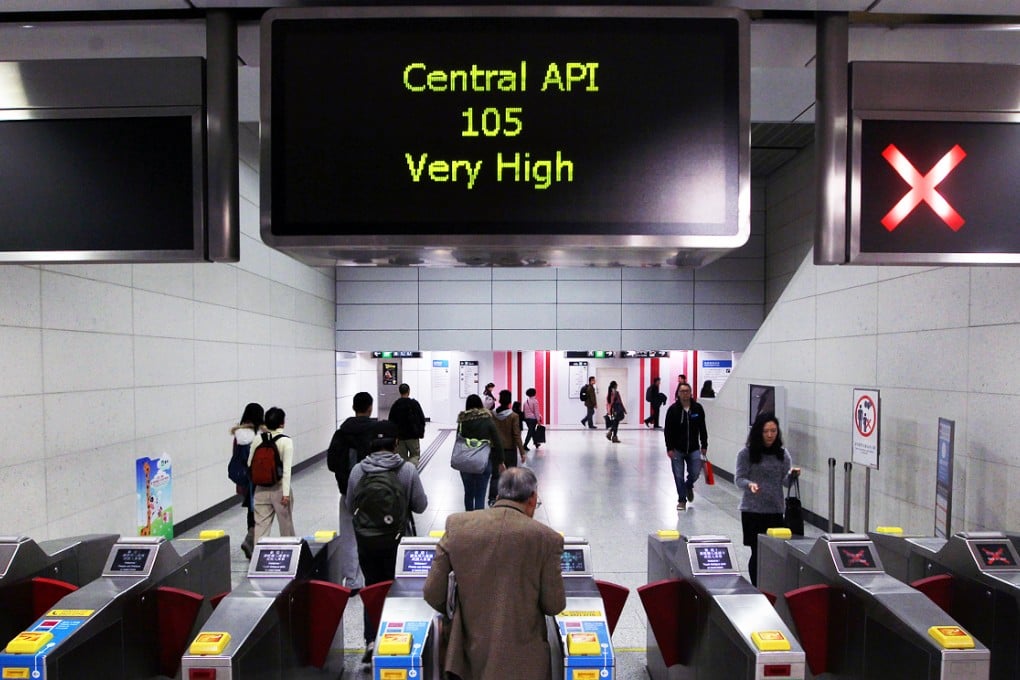HK pollution index 'must spell out health risks'
Hongkongers underestimate impact of poor air quality, say researchers

A nasty cough may not be a sign that this winter's flu epidemic has caught up with you; it could be that the city's pollution is the culprit, according to researchers who found people ill-informed about the effects on their health of Hong Kong's poor air quality.
The team from the Institute of Education is now calling on the government to improve its air pollution index which warns when levels are hazardous to health - but then fails to spell out just what those health risks might be.
"People may not realise air pollution can be the cause when you have a cough or a dry throat," said Dr Lewis Cheung Ting-on, from the institute's Department of Social Sciences.
"If such awareness was higher, people would at least think to tell their doctor that they went for a run when the air was not clean. This would help the doctor make a more accurate diagnosis."
In face-to-face interviews between September and November, 1,004 adults were asked more than 20 questions to assess the impact of air pollution on their own lives - for example, whether it was to blame for their sore throats, runny noses, dirty curtains, cloudy skies or bad smells.
Answers were made using a scale of one to four - with one meaning never, two occasionally and four always. No one gave a level above two. The answers revealed that the most common response to pollution at home was to close the door. It received the highest score of 1.95.